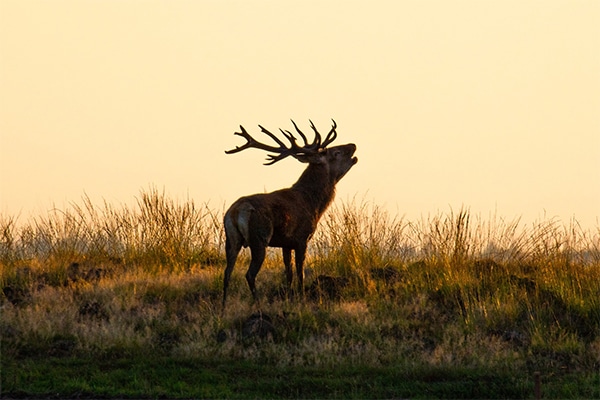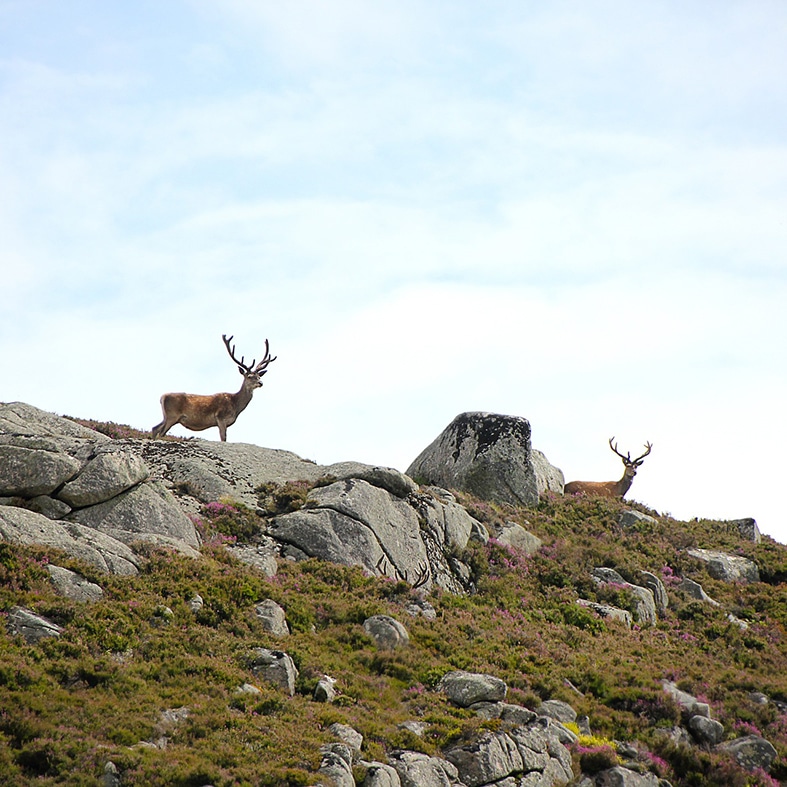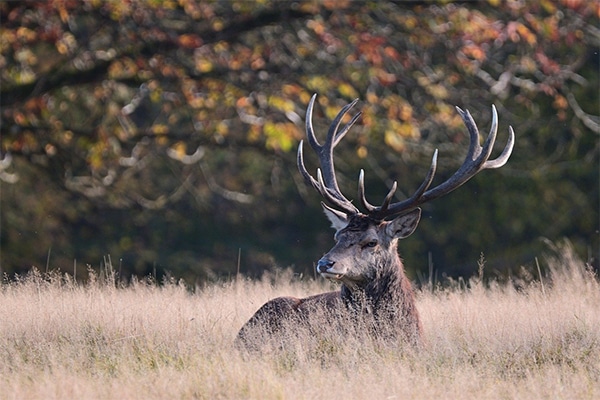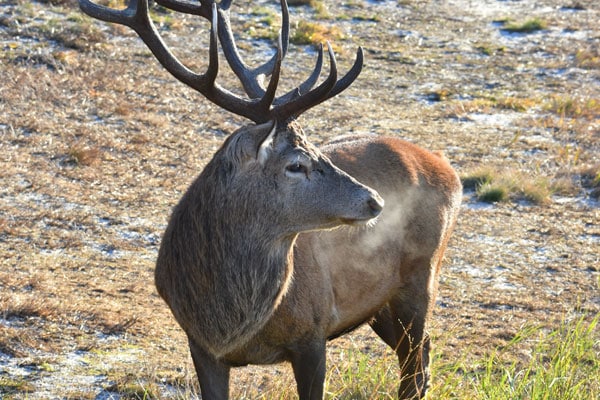
Humane dispatch insurance
All BASC members (excluding supporters) are covered for the humane dispatch of animals,
Get information on the legal shooting season for mammals and birds in the UK.
Apply for funding for your project or make a donation today
Comprehensive information and advice from our specialist firearms team.
Everything you need to know about shotgun, rifle and airgun ammunition.
Find our up-to-date information, advice and links to government resources.
Everything you need to know on firearms law and licensing.
All the latest news and advice on general licences and how they affect you.


Home » Deer management » Deer management advice » Tendering for a deer stalking lease
Here is some advice to help prepare you for the process of applying for a deer stalking lease.
The BASC Deer Department electronic newsletter will keep you informed of important news and events relevant to deer stalking and may occasionally include any available stalking leases of which we are aware. To ensure you are signed up to receive the newsletters, please visit the members’ area of the BASC website and click on the My Preferences link. Alternatively, you can email the deer management team for assistance.
Check out the classified pages of the shooting related publications or internet forums. It is unlikely that the Forestry England (FE) or Forest Land Scotland (FLS) deer control licences will be advertised there but leases on private estates may be found.
You will find a web link on the contracts page which will direct you to all of the relevant documentation concerned with the tender. It is advisable to print off all documents and take time to read through carefully before putting pen to paper. These documents contain important information which you will need to pay particular attention to. Scotland and England tender documents differ slightly in terms of their format and wording but both will usually include some form of the following:
The required standard for the leaseholder and any other authorised controllers named on the licence is Deer Stalking Certificate 2 (DSC2).
Contained within the information on the FE/FLS website will be a range of dates covering a period of perhaps three weeks when viewing of the sites with Forestry Commission (FC) staff will be available. You will need to contact the office listed on the documentation to find out the actual dates of the organised visits for each area and book yourself in for the date that best suits you.
It is highly recommended to visit the site you plan to tender for. Not only does it hold weight in the scoring criteria but also provides the opportunity to view the ground yourself and meet with FE/FLS staff. Remember that first impressions count so ensure you attend appropriately dressed, be polite to others involved and don’t be afraid to ask any relevant questions regarding the site or tendering process. For reference it may be worth noting down any important information you pick up relating to the site.
After visiting the site and presuming you still intend to tender, you will need to complete the questionnaire and tender document. The questionnaire is a tick box exercise and, where applicable, asks if supporting documents can be provided to evidence your answers. It is important to be honest in all your responses and only tick ‘yes’ if you meet the required standard. Any relevant documents should be submitted along with the tender forms.
One of the most frequently asked questions we received last year from members who were working through the tender process was regarding the completion of risk assessments and emergency plans covering lone working. FE/FLS do not require applicants to complete a risk assessment for the site they are tendering for at this stage. They are asking if examples can be provided of one the applicant has completed in the past for a similar activity e.g. a risk assessment for a private deer lease/permission or for fox/vermin shooting on a local farm. It is advised that lone working is included as a hazard in the risk assessment, with further reference to be included in a separate emergency plan.
A complete guide to writing risk assessments and samples can be found by clicking here and below:
Be careful to tender a realistic amount that you are able to pay. Forest Land Scotland leases provide a guide price within the site particulars. Historically this has been around £100 per deer for roe stalking, so for a site with a cull of 10 roe the tender price expected would be in the region of £1,000 plus VAT. This price is then usually split equally between the licence holder and any authorised controllers on the licence.
If you are invited for interview, be punctual and professional in your manner and appearance. The covering letter will detail any relevant documents that you will need to take with you to present at interview. Where applicable, this also includes documents for any potential authorised controllers you may have for the site. This would usually include originals of the following; firearms certificate, DSC awards and public liability insurance.
Some preparation may be required prior to your interview, particular areas may include:
Most of these topics are covered in a simple, easy-to-understand format within the suite of best practice guides available to download from the Deer Initiative website.
It may be wise to have a couple of your own questions ready, should you get the opportunity to ask.
Those tendering for a licence in England will be required to undertake a skills test. This is usually in the form of a shooting test and being competent in the DSC1 shooting standard should cover all possibilities. Applicants would be wise to take the time to practise on the range in order to familiarise themselves with these shooting positions prior to the test. This would usually include three shots in to a 10cm circle at 100m prone position, two shots in a deer target killing area at 100m prone position, two shots in deer target killing area at 70m kneeling or sitting position and two shots in deer target killing area at 40m standing position. Some may include a close-range despatch shot. These requirements are available to view on the DMQ website for reference.
It is essential that your rifle is in good order and appropriately zeroed. Ensure you are happy with the performance of the ammunition you intend to use and take enough with you to cover all eventualities. This will give you the confidence to deliver on the day.
If you are unsuccessful, accept the decision and request feedback on your application in an effort to learn from the experience and enhance your chances of success in the future.
Having your own lease or arrangement with a landowner to enable you to stalk on your “own” piece of ground is the ultimate aim of many stalkers and we get a lot of enquiries about how to go about finding your own stalking ground.
The principles and guidance on this page are equally relevant if you are negotiating for ground with your local landowner or a private woodland company.
Firstly, find out who owns the land on which you are interested in managing the deer. Always ensure that you dress sensibly and are polite and good mannered, similar to a job interview. Talk to the landowner as to what you want to do over the land, and show him how responsible and trustworthy you are.
As a BASC member, remember to tell the farmer that you have insurance and take shooting safety very seriously. Landowners have always been reluctant to allow “strangers” on their land for fear of damages or insurance claims but having insurance can be the difference between gaining a permission to shoot or not.
Have a card or something similar with your contact details on to leave with the landowners as they will be very reluctant to make a decision on the spot and will rather say “no” than a rushed “yes”. Having the opportunity to call you back after they have had time to think about it may change their minds.
If you are lucky enough to gain some stalking permission, remember to respect the farmer’s/ landowner’s wishes and not to take advantage. Farmers quite often see a few deer around and call it hundreds, so be prepared to turn out to go stalking when you know for a fact there may be few there. Just showing willing will appease him and ensure you hold onto your permission. Remember when speaking to landowners that you are offering deer management, not asking for ground to go shooting on: the two are very different.
There are also a number of on-line forums that may also be a good place to try looking for stalking ground and syndicates, such as The Stalking Directory. These forums are a good place to look for companies/ guides that offer stalking too (for a price). As demand for stalking ground is becoming greater, the ground on which people can do so for free is becoming dangerously scarce so paying for the privilege may soon be the only way to go stalking. With this in mind, if you do get some permission then look after it.
Finally, remember to act within Best Practice and the links here can help in preparing a management plan etc with the landowner.
If you require any further information or advice regarding tendering for a stalking lease, please contact the BASC deer team at deer@basc.org.uk or contact your regional BASC office.

All BASC members (excluding supporters) are covered for the humane dispatch of animals,

Find out everything you need to know about deer management, whether you are new to deer stalking, or want more practical advice.

This course is designed as a step between DSC1 and DSC2 to advance and prepare students wishing to undertake the DSC2.